Dying Laughing
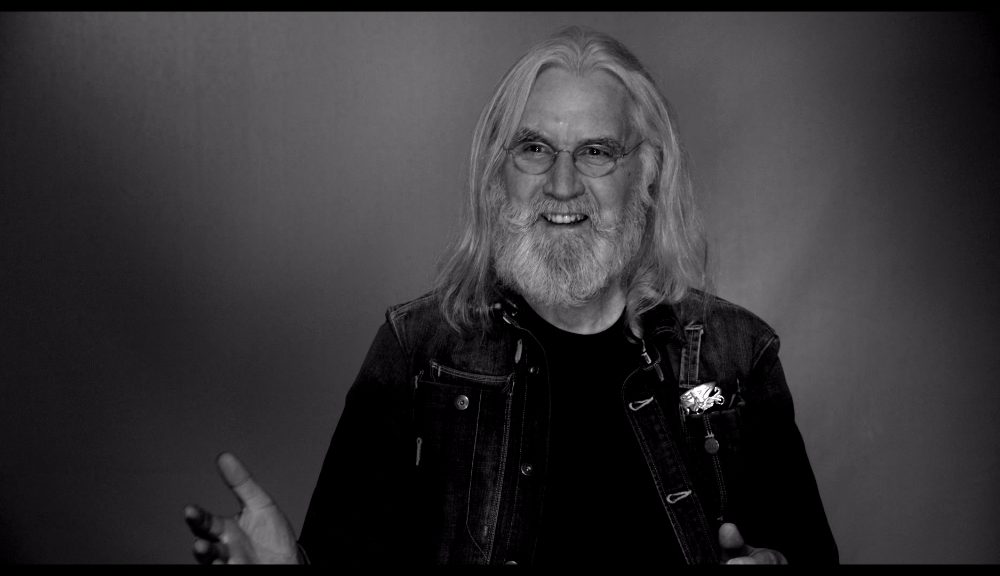
Throughout the ages, comedy has been used to voice social dissent and address taboos, and its influence on the public cannot be underestimated. Imparting uncomfortable truths by simply describing human behaviour, without shying away from the base and the vulgar, has allowed jesters, clowns or comedy writers to venture beyond censorship and kindle the audience’s rawest emotions. Stand-up comedians are the social commentators of our time who are most likely to attract large audiences and, since they rely on brutal honesty, to win their trust.
Directors Lloyd Stanton and Paul Toogood have set themselves the task of psychoanalysing some of the most successful stand-up comedians in order to chart the emotional journey that unfolds behind the scenes. A collection of interview segments with the likes of Chris Rock, Kevin Hart, Jerry Seinfeld, Sarah Silverman, Amy Schumer, Billy Connolly and many more, shows how a sense of vulnerability accompanies the performer at every step. From the time they create the material to the moment they finally perform their act and await the audience’s judgement, the career, and indeed the personal life of the stand-up comedian, is a rollercoaster of violent highs and lows.
Dying Laughing does not provoke as much laughter as one would expect, but is mainly interested in the person behind the performer and in the dark, usually concealed side of the comedy coin. Some shed tears as they remember being booed off stage, with negative responses from the audience sometimes leading to existential crises. Most interviewees speak of a deep-seated, strong need for approval and describe the stage experience as a drug they cannot do without. It seems that for most, the skill of making people laugh is valued as a tool for validation and self-gratification rather than as an opportunity for spreading cheer on a large scale.
If the subjects’ anecdotes are taken at face value, they could be seen simply as amusing insights into the trade, or even dismissed as indulgent navel-gazing. Collectively, however, the individual stories reveal that the value of the documentary lies in its analysis of the complex psychology that surrounds the figure of the comedian. Dying Laughing is not comprehensive in its investigation, but it does address a fascinating subject, and the charisma of its participants means that it is inevitably entertaining.
Mersa Auda
Dying Laughing is released nationwide on 16th June 2017.
Watch the trailer for Dying Laughing here:

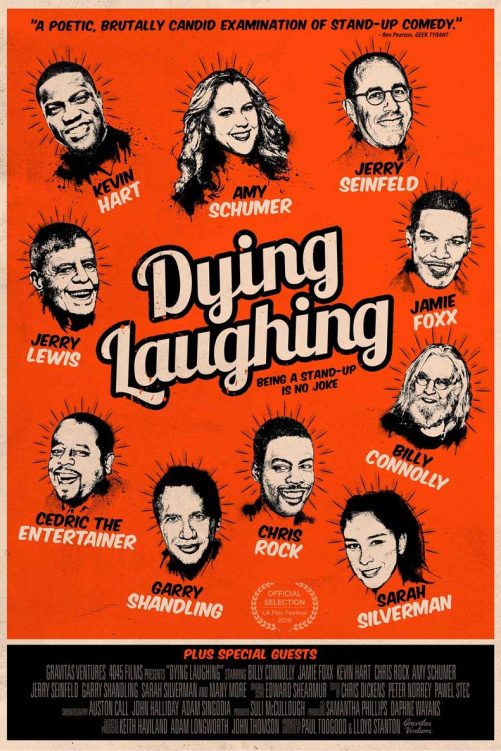

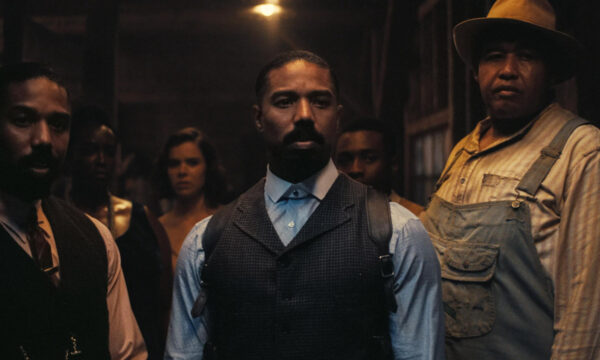


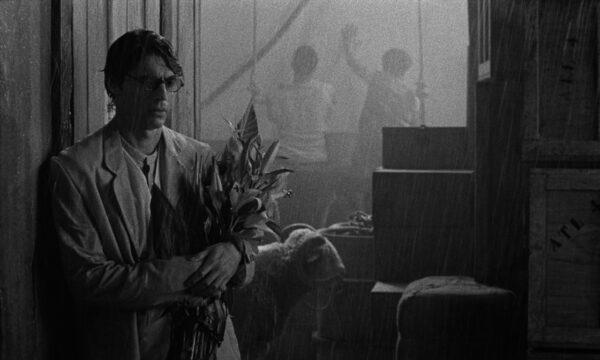
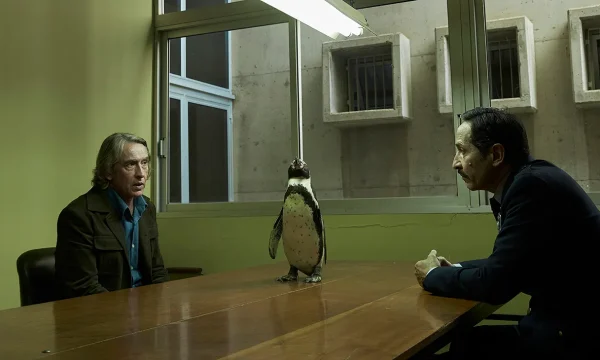
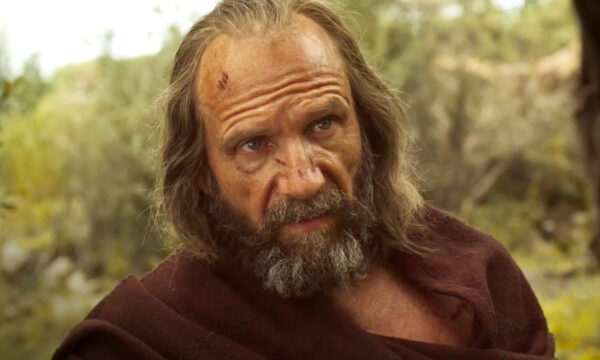
















Facebook
Twitter
Instagram
YouTube
RSS